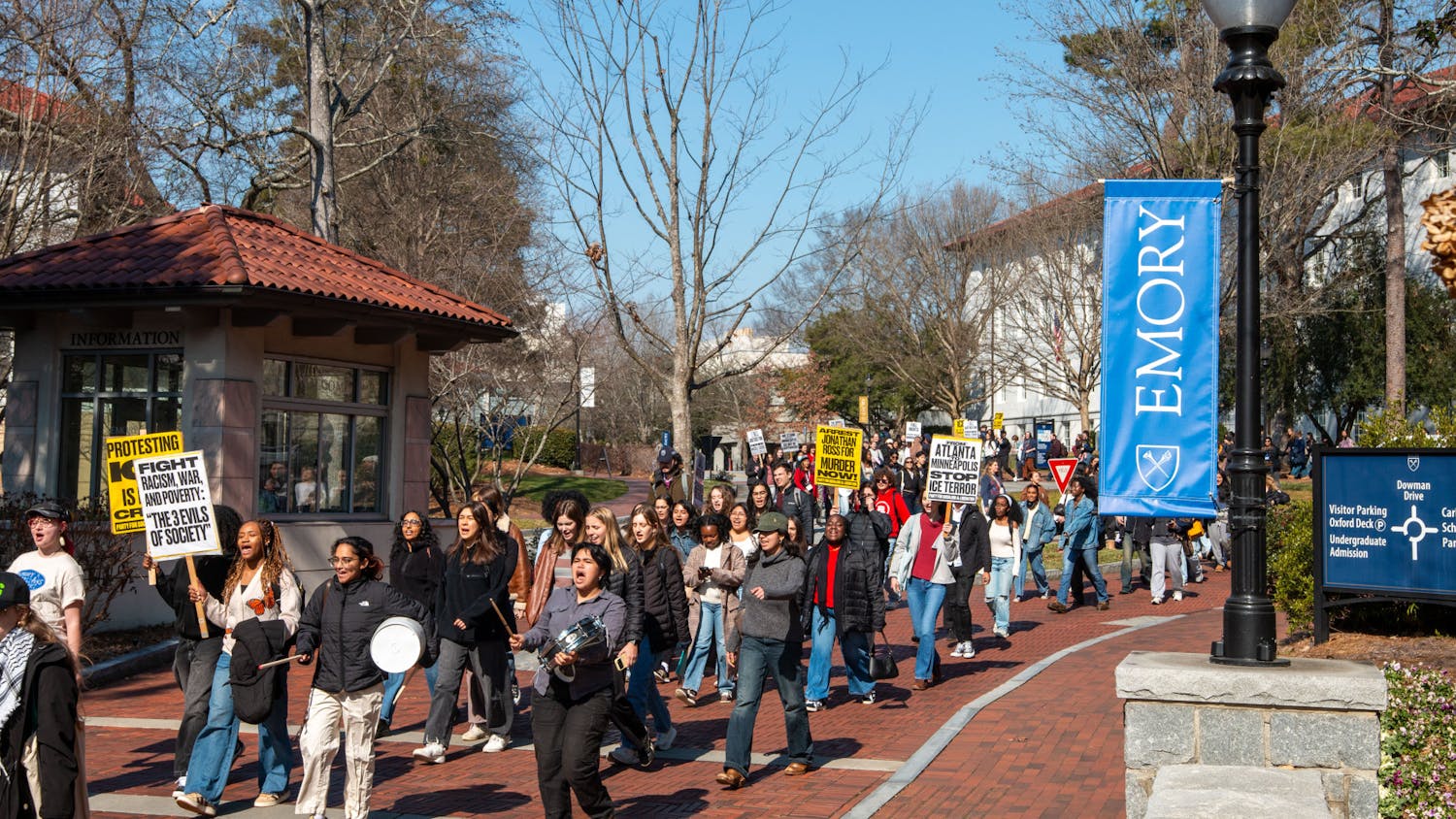Elisabet Ortiz (24C) publicized her disqualification from the Student Government Association (SGA) Presidential race in a March 19 Instagram post.
The Board of Elections voted unanimously to render Ortiz ineligible to be an SGA candidate due to her enrollment status as a gap year student on March 16 and subsequently notified the candidate on March 17, Elections Board Chair Mild Trakarnsakdikul (19Ox, 22B) said.
According to Trakarnsakdikul, the Board of Elections asked candidates to assure their qualifications including enrollment status, GPA standing and agreement to remain a registered student during their term. The Board of Elections sent out the form to confirm the candidates’ standing 24 hours before candidate dropout deadline, March 16, and the finalization of the ballot, Trakarnsadikul said.
Ortiz called on the student body to vote “no confidence” in the upcoming race to stand in solidarity with disenfranchised peers and advocate for the SGA legislature to amend the Code of Elections. The election is currently scheduled to be held between March 22 at 12 p.m. to March 25 at 12 p.m.
Citing that she may have been “treated unfairly in the election process” and “disqualified late in the race” following an official approval for her candidacy, Ortiz said she is appealing the decision to the Constitution Council for investigation.
“I explained to the Board that my gap year was involuntary,” Ortiz wrote in the post. “I was forced to take a year off of school to settle my case for legal emancipation from my abusive family.”
However, Ortiz said she plans to be a full-time student come fall 2022, and remain a full-time student for the duration of the SGA presidential term.
In regards to the late notification, Trakarnsakdikul stated that the Board of Elections tells candidates to go through the Code of Elections themselves to verify their eligibility during information sessions and candidate meetings, as “it is also the candidates’ responsibility to know the requirements of their eligibility.” She added that the Board of Elections assume that candidates meet eligibility requirements upon their application and declaration, noting that the form is a “formality.”
Only permitting full-time students to run in elections is inequitable, Ortiz added, as it bars disenfranchised students, such as those facing legal complications, on medical leave or taking time off for mental health from running.
“This policy is discriminatory, not because it was written with malice towards disenfranchised students, but because it was written without us in mind — that a student in my position would run for student government was never even considered,” Ortiz wrote.
The Code of Elections and SGA constitution are “inconsistent,” Ortiz alleged. Article VII Section 2 Part A of the constitution states that the president of SGA shall “be an undergraduate student enrolled at Emory University.” Under Part IV Article 1 Section A, the Code of Elections states that “all candidates for the office of the President and Executive Vice President must be enrolled full-time at Emory University. Such qualifications may only be changed by amending the Student Constitution.”
Trakarnsakdikul stated that Article VII Section 2 Part A of the Constitution ”refers to the current SGA President and not candidates for the position of President.”
Contending that nobody cares more about Emory and its students than Ortiz, College Council Second-Year Legislator Rebecca Schwartz (24C) hopes for Ortiz to be given an equal chance at running for SGA.
“I am hopeful that we will be able to amend the SGA Elections Code and allow Elisabet to run, seeing as the Elections Code not only misquotes the Student Constitution, but also that enforcing this rule in the SGA Elections Code will only serve to discriminate against a student that has proven time and time again how much she cares for the Emory community, and how involved she has always been, even when not enrolled full time,” Schwartz said.
Former SGA Speaker Joseph Banko (23C) shared a similar sentiment, stating that he interprets Part IV, Article 1, Clause A of the Code of Elections to be deferring to the SGA Constitution due to the language used.
“The language here is clear,” Banko said. “It only mandates that the president of SGA shall be an undergraduate student enrolled at Emory University.”
Based on his understanding, candidates were asked to comment on their own eligibility while filing for candidacy, at which point Ortiz could have answered the question and maintained eligibility, Banko said.
Ortiz called on the student body to vote “no confidence” in the upcoming race to stand in solidarity with disenfranchised peers and advocate for the SGA legislature to amend the Code of Elections. The election is currently scheduled to be held between March 22 at 12 p.m. to March 25 at 12 p.m.
Given the discrepancy between the Code of Elections and SGA Constitution, the Code of Elections doesn’t appear to be “based in the original text it claims to have drawn inspiration” from, Schwartz noted.
“Having been in SGA for the past two years, I understand how important our governing documents are to us, and how they help us serve the student body,” Schwartz said. “If we hide behind them as an excuse not to represent the needs of the student body, then that defeats the whole purpose.”
Noting that provisions in the Code of Elections requiring full time enrollment were created before the pandemic, Banko said he would like legislators to propose an amendment to remove the clauses currently being debated.
“I don’t see the necessity,” Bank said. “It’s evident that they are excluding people in this election cycle.”
In the interim, Banko hopes that the election timeline will be delayed and that students vote “no confidence” in the election as there is an undetermined “source of ill will.”
Students expressed discontent with the lack of transparency on behalf of Student Government Association as well as the decision to bar Elisabet from running. “I think that Elisabet’s situation also isn’t something that she can control,” Vivian Liu (23C) said. “I do wish SGA would be more transparent about what happened on their end, who the people on the board of elections are, and why they made that decision at this stage.”
With Ortiz disqualified, Ranjan Kesavan (24C), Eleanor Liu (21Ox, 23B) and Alyssa Stegall (21Ox, 23C) remain in the race.
The Constitutional Council is unable to comment on the case before it is wrapped up, Chief Justice of the Constitutional Council Ben Thomas (23C) wrote in a March 19 statement to the Wheel.
Elisabet Ortiz (24C) did not respond for comment.
Update (3/20/2022 at 1:05 p.m.): This article was updated to include comment from Joeseph Banko (23C).







